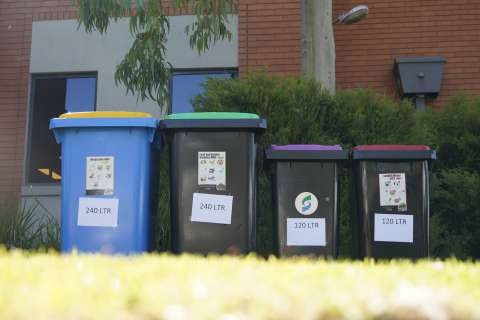Greater Shepparton City Council adopted an updated Kerbside Landfill Waste, Recycling and Organics Collection Policy at the February Council Meeting, to reflect the upcoming changes to the kerbside collection services.

The changes reflected in the Policy include a recommendation to create a standard bin service across the municipality. This will result in the red lid bin to be collected fortnightly and the green lid bin to be collected weekly, as well as the introduction of a kerbside service for glass, with a purple bin to be introduced and collected monthly. These changes will be implemented in stages across the region, beginning next month with the frequency changes in Kialla and Tatura, followed by the remaining areas later in the year. The purple lid bin glass collection service will commence in March 2024.
The changes come after Council adopted the Kerbside Transition Program at the November Council Meeting to address the Victorian Government's Recycling Victoria policy, which aims to divert 80 per cent of waste from landfill by 2030. Under the policy, all Victorian households will get access to services for four waste and recycling streams, including separate streams for glass, food organics and garden organics (FOGO), mixed recyclables and household rubbish.
The policy outlined how consistent separation of household waste and recycling would increase the quality of recycled material for reuse and reduce the amount of recyclable products sent to landfill.
Mayor, Councillor Shane Sali said an update of the existing Kerbside Collection Policy was needed to strengthen its content in relation to the four bin services and ensure it remained accurate.
"Updating the policy was a necessary step to ensure it aligned with the changes Council adopted in November last year to address the State Government targets," he said.
"The updated policy also incorporates the findings of the audit completed in September last year which found that red lid bins in rural properties had a significant portion, around 35 per cent, of food and garden organics in the landfill bins. This proved the need for a standardised kerbside collection service within the region."






